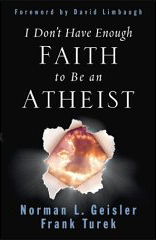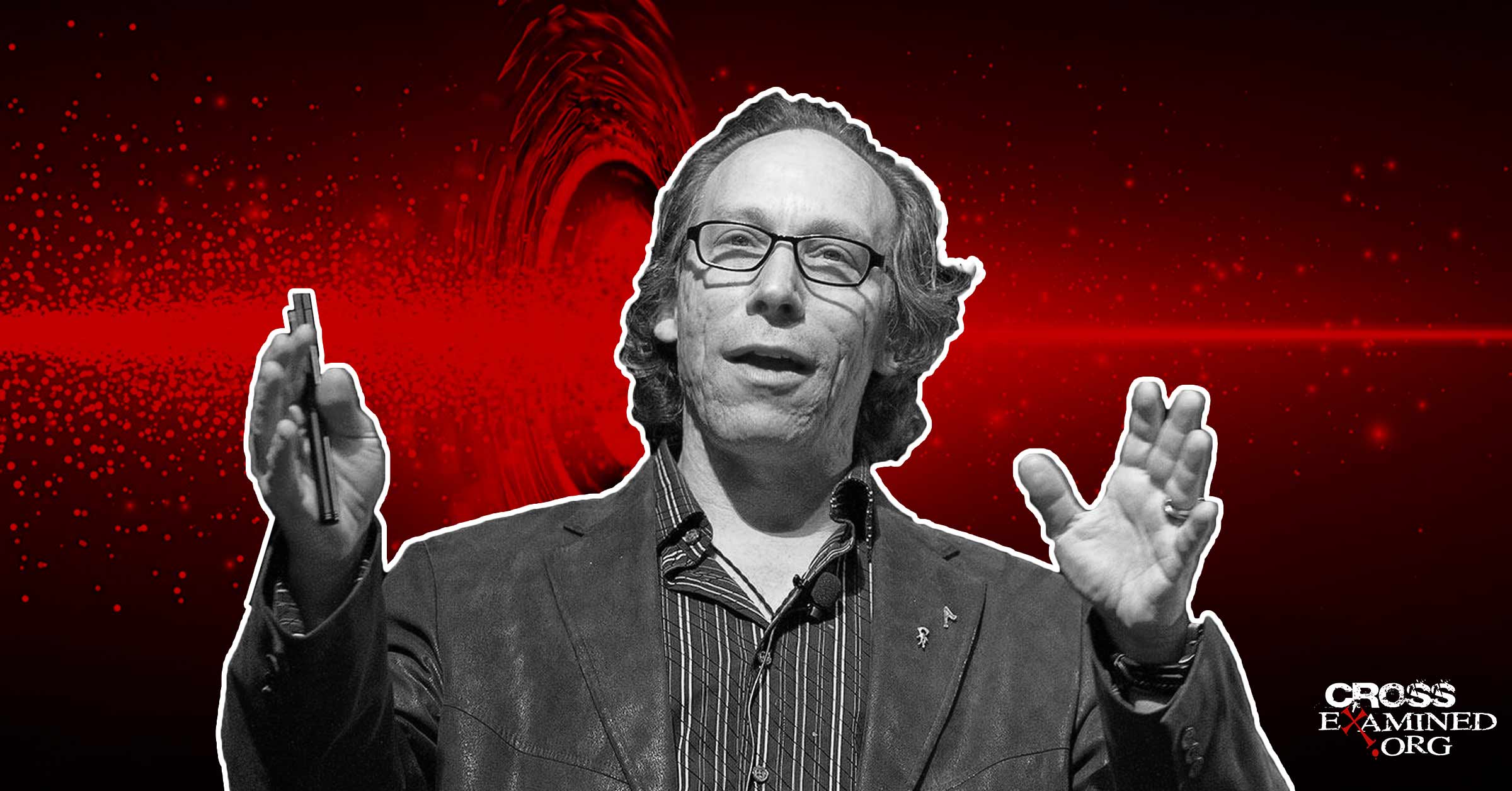This is my last blog dealing with the origin of the universe as an argument for the existence of God. I’ll examine the issue of whether new physics might be discovered to enable the universe to be past eternal. I’ll offer a couple of philosophical arguments against the possibility of an eternal past. If these arguments succeed we can be confident that no scientific discoveries could ever show that the universe has existed forever. Indeed if these arguments are sound, the scientific evidence I’ve offered so far would become superfluous.
If the universe has existed forever, this would entail an actually infinite number of past events. I use the term “actually infinite” to distinguish it from a potential infinite quantity. No one doubts that the number of future events can grow without limit but this is merely a potential infinite. Any finite time in the future there would still have been a finite number of events since the current time so the infinity is just potential – it represents an unattainable limit as this article by George Ellis, a prominent cosmologist, indicates.
Is it possible for actually infinite numbers of entities to be realized in the actual world?
One of the greatest mathematicians of all-time, David Hilbert, certainly didn’t think so: “the infinite is nowhere to be found in reality. It neither exists in nature nor provides a legitimate basis for rational thought.“ Georg Cantor established a mathematically rigorous way of dealing with the concept of infinity that is very useful for mathematical and scientific calculations. Although Hilbert defended Cantor’s work, he argued that infinities couldn’t exist in the actual world or they would lead to absurdities.
Some readers may be thinking that if it is mathematically possible it has to be physically possible. But not everything used in mathematics necessarily implies a direct correspondence with physical ontology (nature of being). Infinitesimals are mathematically feasible and highly useful in calculus, but modern physics holds that everything is quantized. Mathematical consistency and coherence doesn’t necessarily imply physical realization – there are abstract mathematical systems that can be constructed that are coherent but not all of them are necessarily realized anywhere in physics. In computer science we often choose between multiple mathematically equivalent but quite different ways of computing things – they can’t all correspond to physical ontology because they entail fundamentally different ways of modeling reality. Infinities that show up in physics equations are considered problematic unless and until some type of renormalization can be performed.
So if we can show that absurdities result if actual infinites exist, then we have good reasons for rejecting the possibility of an actually infinite number of past events – even if it is mathematically feasible. Here is how philosopher Peter S Williams makes this argument to a lay audience:
Suppose I ask you to loan me a certain book, but you say: ‘I don’t have it right now, but I’ll ask my friend to lend me his copy and then I’ll lend it to you.’
- Suppose your friend says the same thing and so on…
- If the process of asking to borrow the book goes on forever, I’ll never get the book
- If I get the book, the process that led to me getting it can’t have gone on forever
Somewhere down the line of requests to borrow the book, someone had the book without having to borrow it. It’s easy to see how this analogy applies to the Kalam – if the arrival of the current event/book required infinitely many prior events, it would have never arrived. You cannot traverse an actual infinity. If the current event/book did arrive, the process that led to it couldn’t have gone on forever.
Another example of the physical impossibility of an actually infinite number of items is the following. Suppose that there is one particle of some type for every positive whole number (integer) – we can think of these as comprising a mathematical set in which we’ve numbered the particles. The number of particles is aleph null and represents a so-called countable infinity. Suppose this type of particle is not stable and thus half of the particles decay in some time interval. One could think of the number of particles in this set as now consisting of the even integers. But one can also reach a contradictory answer that the number of particles is the same as the original by proving mathematically that the number of even, positive integers is the same as the number of positive integers.
This mathematical proof is quite simply done by showing a one-to-one correspondence between the elements in the set. For every integer in the original set, there is one integer in the set of even integers (2,4,6, …) obtained by just doubling the original value. Thus, the number of particles in each set is mathematically identical even though half of the original particles underwent decay. After we wait another half-life, half of the remaining particles have now decayed so the set would consist of particles (4,8,12, …). However it can also be mathematically proven that the number of positive integers that are multiples of 4 is identical to the number of positive integers. Have the number of particles been reduced or not? We reach contradictory results – no matter how many half-lifes we wait, the number of particles is the unchanged and has been reduced as per the usual physics equation. Thus, dealing with the actually infinite in reality would violate the laws of physics.
Philosopher Alexander Pruss offers at 6 arguments in support of premise 2 of the Kalam – that there couldn’t have been an infinite number of past events. Although he thinks actual infinities might be possible in general, he doesn’t think an infinite causal chain is possible. “This strengthens the Kalaam argument by showing that the premises can be weakened: the Kalaam argument only needs the kind of causal anti-infinitism that I now cautiously accept.”
Objection: But doesn’t Christianity require that God has lived through an infinite number of events?
There has never been a time at which God has not existed. However, if time is a physical entity that began to exist, it seems to have been something brought about by a cause outside of time. The classic theistic understanding is that God is an eternal being that exists outside of time. There is an interesting passage in the New Testament, Jude 24, that speaks of God having dominion and glory before time began. See also Titus 1:2 for another Biblical reference consistent with the understanding from modern physics that time had a beginning. As evidence of God being able to see into the future one can study Biblical prophecies of the future state of cities such as Memphis, Thebes, Babylon, Ninevah, Ashkelon and peoples such as the Philistines, Edomites, and Jews. (See this link to explore this evidence for divine inspiration of texts known to be written before the fulfillment)
It may be hard for us to grasp something that exists outside of time since we are constrained in this realm. Many scientists, however, do posit the existence of other space-time dimensions and explain how we would be unaware of these – e.g. see the book Flatland, which Hawking and Sagan point to an illustration of the possibility of unseen dimensions. Perhaps God exists in another realm or dimension of time or perhaps William Lane Craig is right in theorizing that God existed timelessly before creation and stepped into time when He created time.
Final Comments on the Implications of the Kalam
The conclusion of the Kalam is pretty modest. It doesn’t establish the existence of a particular god etc. Deism rather than theism could still be true if this is all we had to go on. The Kalam, however, is a strong refutation of naturalism – the view that nature is all there is. Most atheists hold to naturalism and if they admit that it’s false they’ve undermined the most significant traditional arguments for atheism.
A transcendent cause to the Universe possesses some properties of God such as being beyond space and time and being immaterial. It’s pretty hard to deny this as atheist scientist Lewis Wolpert discovered in his debate with William Lane Craig. Wolpert admited that the universe had a beginning saying “well we know that, nobody disputes that.” The ease with which he is willing to admit this should bother you if you’re a skeptic as it is yet another testimony to how this argument depends only upon mainstream, widely accepted science. Wolpert’s assertion that it might have been a very special computer fails miserably as one can see here.












